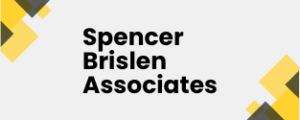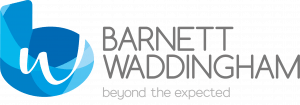Learn more about what it’s like being an actuarial consultant at Willis Towers Watson and if it’s the right actuarial role for you…
After graduating from Warwick University, I joined Towers Watson’s Retirement department in the Reigate office. I am now one and a half years in and am working my way through the actuarial exams.
The learning curve is very steep, but the graduate programme at Towers Watson is packed with training, support and great people to help you out. I was one of ten new graduates to join the Defined Benefit practice in the Reigate office in 2013. Learning alongside friends and in a really open office environment is one of the highlights of my time here so far.
The application process – any advice?
The application process for a graduate position at Towers Watson is fairly standard; I applied online, completed online tests, had a telephone interview and then attended an assessment centre at the Reigate office where I now work.
This last step was the ‘biggie’. There were around eight candidates at my assessment centre and the day was split into the following parts:
- Interview
- Role-play
- Problem solving interview
- Group exercise
The interviewers and organisers of the day were all very friendly; the emphasis was definitely more on finding out more about you than on seeing how you coped under intense pressure. You can only really prepare for the general interview, so I would advise you to store up examples of how you have demonstrated different competencies, research the company and role, and read up on news stories relevant to the specific line of business you are applying for.
What are your main duties as an Actuarial Consultant at Willis Towers Watson?
When starting out, graduates in my office were assigned to a couple of client teams and one non-client role. This varies across offices depending on the size and workload of the various clients. For the first couple of years, we are also assigned work through the Client Support Team, which allows you to take on pieces of work for other client teams when they need an extra resource. I found that being on a small number of client teams allows you to see the full breadth of work that is done on that team, rather than performing the same kind of tasks for a large number of clients.
Some examples of my main duties over the first couple of years are as follows:
1. Calculations
In my first year, calculations were a fairly large part of my workload. These included working out transfer values for individual pension scheme members, divorce calculations and redundancy costs, among others. Within a few months of starting, I calculated the pension value of the CEO of a major pharmaceutical company for their Annual Report, which I thought was very exciting. Now that I am a year and a half in, there are new graduates on my client teams, so my role has shifted to checking rather than doing the calculations.
2. Valuations
Valuations for accounting purposes are done yearly and formal funding valuations are carried out every three years. These can be quite busy periods and involve a variety of different work. On one of my client teams, we are currently carrying out some experience analysis in order to work out how accurate our mortality assumptions have been since the last valuation and to help decide a basis with which to value the pension scheme liabilities this time around. The background for this type of work is studied in one of the Core Technical actuarial exams, so it is quite reassuring to know that a lot of what you have to study to qualify as an actuary will come in use in your day to day work.
3. Other
Aside from those mentioned above, there is a huge variety of work to get involved in. Some examples are funding updates for Trustees, reports, accounting assumption guidance and surveys, factor reviews and account management. There are also opportunities to get involved in some less serious tasks, such as helping with the quarterly office newsletter, organising socials or putting up Christmas decorations (which is always assigned to the new graduate in the area).
What skills are useful in this profession?
As well as a background in maths, the following skills are useful for training to be an actuary:
- Time management – Juggling work, revision for exams and a social life can be difficult at times. However, we are given 40 study days a year (which equates to a lot of four day working weeks), so that does help.
- Communication – The role involves communication with colleagues of all levels, as well as with clients and administrators.
- IT and Excel skills – New graduates receive training on specific tools, but a good grounding in IT and Excel definitely helps.
Is it a 9-5 job?
It is definitely a start-at-9 job. Finishing at 5 is encouraged, especially as a new graduate, but there are times when tight deadlines or busy periods mean that you have to be a bit flexible and stay later when needed. One point I would emphasise is that there is definitely not a ‘face time’ culture that some professions seem to have; staying late on a regular basis is not expected or encouraged.





